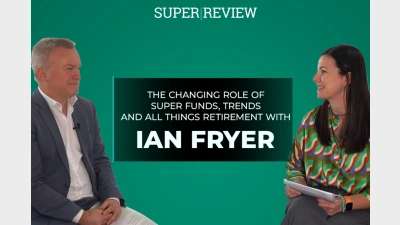Using data to bounce back from 2018



In the wake of a Royal Commission and Productivity Commission report into superannuation, the funds that will come out on top are those willing to publicly lift the lid on how they’re managing members’ assets.
There’s public appetite for more transparency and accountability – best to get ahead of the pack and provide that through data before other force funds to.
In the wake of a Royal Commission and Productivity Commission report into superannuation, the funds that will come out on top are those willing to publicly lift the lid on how they’re managing members’ assets.
From using data to respond to the Royal Commission to quantitative ratings of superannuation funds, a common theme through the pages of the first Super Review for 2019 is that of data.
In an environment where accountability and transparency in the financial services sector are under both public and regulatory scrutiny, it’s not surprising that data is carrying a growing amount of weight, especially when the Productivity Commission was heard complaining to Senate Estimates about the quality of the data collected by the Australian Prudential Regulation Authority (APRA).
So, it is in interests of superannuation funds to make their data as transparent, consistent, and accurate as possible.
This year, the financial services sector will be subject to scrutiny across the board. With a change of Government likely and the public’s trust in those who manage its money now diving, it’s not the time to be hiding behind difficult-to-understand product descriptions or poor reporting to regulators. Those who come out of this period strongest will be those who are open about how they operate and perform. The superannuation industry can and should fall into this category.
Better data would certainly solve a lot of its issues with the slew of reform that is inevitably in the works after last year. Just last month for example, Professor Deborah Ralston told the SMSF Association National Conference that clearer data would’ve prevented some of the inaccuracies of the Productivity Commission’s report, from both self-managed superannuation funds and member super funds.
And as IRESS’ Jeff Hall writes in this magazine, better use of data analytics could’ve prevented some of the issues that came before the Banking Royal Commission superannuation hearings before they came to a head.
As he also observes, super funds should already have this data, they just need to better utilise it.
To this end, in this issue of Super Review we are launching the Superannuation Fund Crown Ratings. These use the data available to our parent company, FE, to work toward something that is in the entire superannuation industry’s interests – better informing superannuation members of how their retirement savings are being cared for.
As we enter a period of public scrutiny across the sector, funds that are proactive in providing this sort of analysis won’t go astray. As funds continue their ongoing battle for member engagement, it won’t hurt either. After all, an informed public is often an engaged one.
If superannuation funds won’t do it, eventually others will do it for them. There’s public appetite for more transparency and accountability – best to get ahead of the pack and provide that through data before other force funds to.
Recommended for you
In this Super Review Product Spotlight episode, host Maja Garaca Djurdjevic speaks with Ian Fryer, general manager at Chant West, to discuss the latest developments in superannuation.
In this new Super Review Product Spotlight episode, host Maja Garaca Djurdjevic is joined by Ian Fryer, the general manager at Chant West. Together, they explore Chant West's enduring reputation in the industry and share insights on the imminent changes in the super landscape.
While the last two years have been challenging for the superannuation industry, there is more to come in 2022 and super funds will need to rise up to the challenge.
With 20/20 hindsight, the disengagement which occurred with the introduction of the MySuper regime was a mistake which now needs to be urgently corrected.









